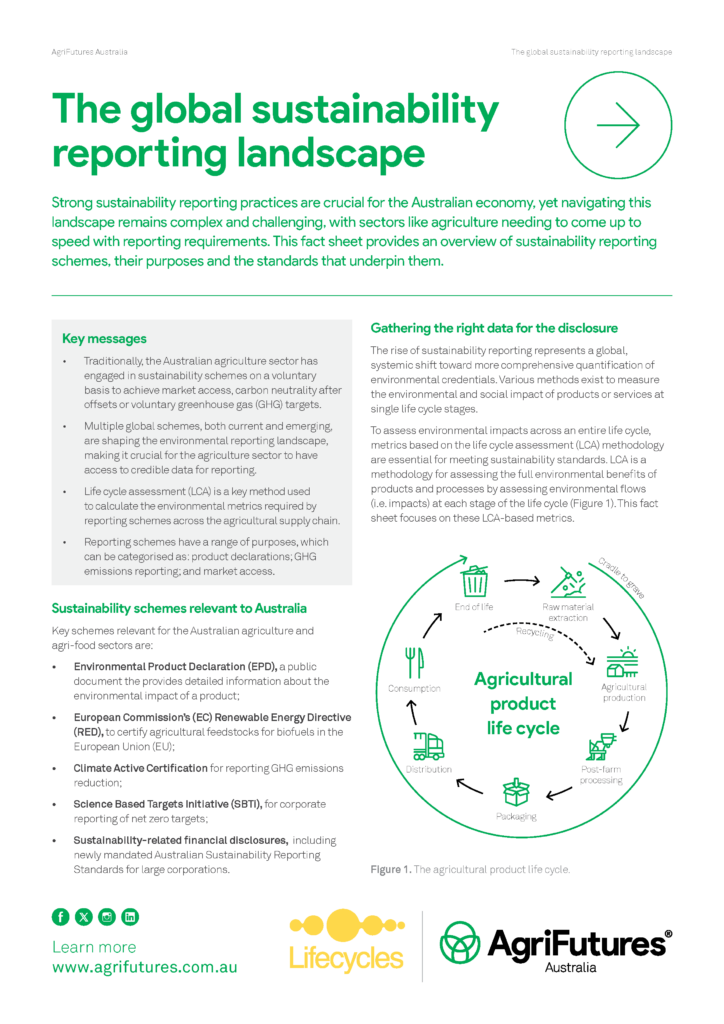Strong sustainability reporting practices are crucial for the Australian economy, yet navigating this landscape remains complex and challenging, with sectors like agriculture needing to come up to speed with reporting requirements. This fact sheet provides an overview of sustainability reporting schemes, their purposes and the standards that underpin them.
Key messages
— Traditionally, the Australian agriculture sector has engaged in sustainability schemes on a voluntary basis to achieve market access, carbon neutrality after offsets or voluntary greenhouse gas (GHG) targets.
— Multiple global schemes, both current and emerging, are shaping the environmental reporting landscape, making it crucial for the agriculture sector to have access to credible data for reporting.
— Life cycle assessment (LCA) is a key method used to calculate the environmental metrics required by reporting schemes across the agricultural supply chain.
— Reporting schemes have a range of purposes, which can be categorised as: product declarations; GHG emissions reporting; and market access.





